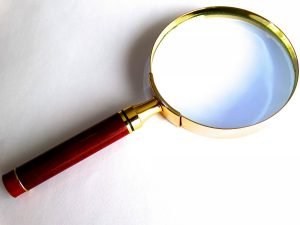Brain Support Network helps over 200 families a year with brain donation arrangements
We are honored to assist your family with brain donation arrangements.
 Most likely you’ve been given this webpage as you have a family member coping with progressive supranuclear palsy (PSP), corticobasal degeneration (CBD), multiple system atrophy (MSA), frontotemporal dementia (FTD) or amyotrophic lateral sclerosis (ALS). (Note that all types of frontotemporal degeneration — FTDbv, PPA, SD, etc — are included under the term “frontotemporal dementia” for purposes of this webpage.)
Most likely you’ve been given this webpage as you have a family member coping with progressive supranuclear palsy (PSP), corticobasal degeneration (CBD), multiple system atrophy (MSA), frontotemporal dementia (FTD) or amyotrophic lateral sclerosis (ALS). (Note that all types of frontotemporal degeneration — FTDbv, PPA, SD, etc — are included under the term “frontotemporal dementia” for purposes of this webpage.)
We’ve provided some details below about the CurePSP brain donation grant for families coping with these diagnoses. Plus, there’s additional information about how Brain Support Network may be of assistance with grant funds as well.
CurePSP offers taxable grant of up to $1,000 for PSP, CBD, MSA, and FTD families
CurePSP offers “a grant of up to $1,000 of taxable income to cover the cost of tissue harvest and transportation” to PSP, CBD, MSA, FTD, and ALS families. The brain must be donated to the Mayo Clinic in Jacksonville, Florida.
 Up until early 2019 or so, CurePSP would occasionally pay the pathology provider directly, but this is no longer allowed. Now, the grant recipient must be a family member. CurePSP will not allow the grant recipient to be a pathology provider, funeral home, or Brain Support Network.
Up until early 2019 or so, CurePSP would occasionally pay the pathology provider directly, but this is no longer allowed. Now, the grant recipient must be a family member. CurePSP will not allow the grant recipient to be a pathology provider, funeral home, or Brain Support Network.
The family must bear the expense, and then seek reimbursement from CurePSP. If your family cannot pay the pathology provider upfront, please contact Brain Support Network (cell 650-814-0848). We are sometimes able to help.
 To seek reimbursement from CurePSP, please send Joanna Teters via email ([email protected]) or fax (410-785-7009) the following:
To seek reimbursement from CurePSP, please send Joanna Teters via email ([email protected]) or fax (410-785-7009) the following:
* Proof of patient’s diagnosis
* Receipt of payment for the brain donation (cancelled check works too)
* W9 tax form for the individual who will be receiving reimbursement
* mailing address of person who will be receiving reimbursement if it differs from information stated on W9 tax form
At tax time, all grant recipients will receive a 1099 from CurePSP, indicating the value of the grant received.
 As for “proof of patient’s diagnosis,” we believe that you could share a page from an appointment visit with an MD that provides the donor’s name and diagnosis. This could even be a page from a hospice medical record. Or, if you wait long enough, this could be the neuropathology report, “proving” the diagnosis.
As for “proof of patient’s diagnosis,” we believe that you could share a page from an appointment visit with an MD that provides the donor’s name and diagnosis. This could even be a page from a hospice medical record. Or, if you wait long enough, this could be the neuropathology report, “proving” the diagnosis.
Note that Brain Support Network asks all of the pathology resources we work with to provide the family with a receipt, indicating the pathology fee the family paid. We also request that they include the diagnosis of PSP, CBD, MSA, FTD, and ALS when relevant. Often times, CurePSP has considered this adequate “proof of patient’s diagnosis.”
Brain Support Network may be able to help
If there is a financial need such that your family cannot pay the pathology provider upfront, please contact Brain Support Network (cell 650-814-0848). We are sometimes able to help.
 And, contact Brain Support Network if you have a financial need and are dealing with Lewy body dementia, Parkinson’s Disease, atypical parkinsonism, early onset Alzheimer’s, or a family history of dementia (at least three generations or multiple family members in the same generation). These diagnoses are not covered by the CurePSP grant.
And, contact Brain Support Network if you have a financial need and are dealing with Lewy body dementia, Parkinson’s Disease, atypical parkinsonism, early onset Alzheimer’s, or a family history of dementia (at least three generations or multiple family members in the same generation). These diagnoses are not covered by the CurePSP grant.
Brain Support Network welcomes charitable contributions from generous donors to help us fund our brain donation grant program! Please contact Brain Support Network (cell 650-814-0848) for details. Funders may request that we limit our family grants to certain diagnoses and for specific amounts (such as $1,000, or half the total costs up to $500, etc).
—–
This information last updated: August 1, 2022.
Key changes to CurePSP info (August 1, 2022): grant amount now $1,000 (had been $750 for at least two decades).
Key changes to CurePSP info (March 31, 2020): W9 form now required from CurePSP (as grants are now taxable); cancelled checks are sufficient documentation.
